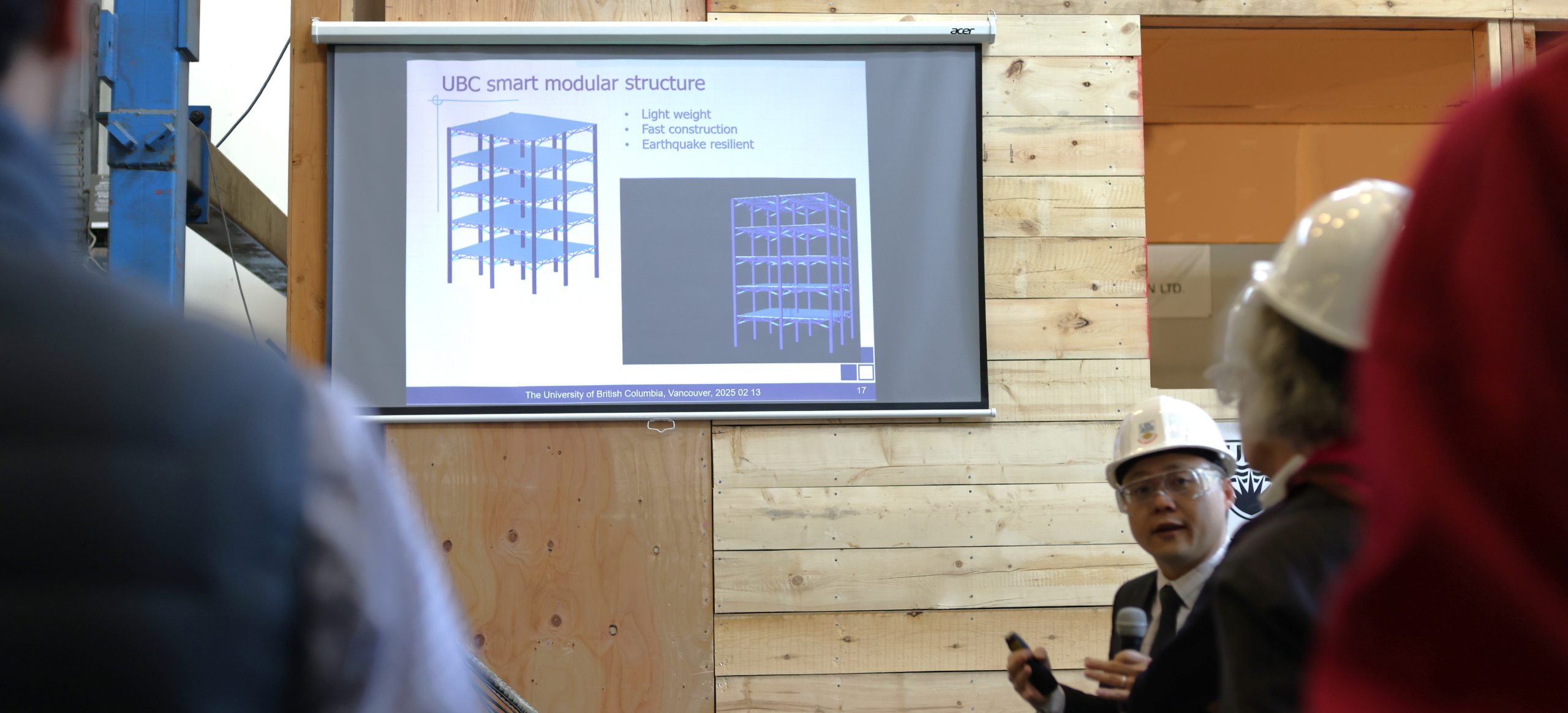UBC Civil Engineering is leading a major national research initiative to transform modular construction in Canada, in collaboration with the University of New Brunswick (UNB) and the University of Victoria (UVic). With $8.27 million in funding from a research project supported by Natural Resources Canada (NRCan), the National Research Council (NRC), and key industry partners, the project aims to address critical challenges related to housing supply, skilled labor shortages, and climate impact.
This multidisciplinary effort brings together expertise in structural engineering, materials science, building science, mechanical and electrical engineering, and climate resilience to develop next-generation modular building systems that are high-performance, low-carbon, and energy-efficient.
The initiative is structured around four key research themes:
- Theme 1: Development of high-performance, energy-efficient modular structural and non-structural components and systems.
- Theme 2: Quantification of energy use and greenhouse gas (GHG) emissions in modular buildings.
- Theme 3: Operational monitoring and optimization of energy performance and carbon emissions.
- Theme 4: Design, implementation, and knowledge mobilization for high-performance modular construction.
At UBC Civil Engineering, Dr. Tony Yang and his research group, UBC Smart Structures, Dr. Nemy Banthia, Dr. Jongho Lee, Dr. Omar Swei, and their teams—are working closely with industry and government partners to develop the emerging technologies. The project will culminate in the development of a full-scale prototype building and a comprehensive design guide to support broader industry adoption. By contributing technical expertise and research-driven insights, UBC Civil Engineering researchers are helping shape a more sustainable and climate-resilient built environment for future generations of Canada.
